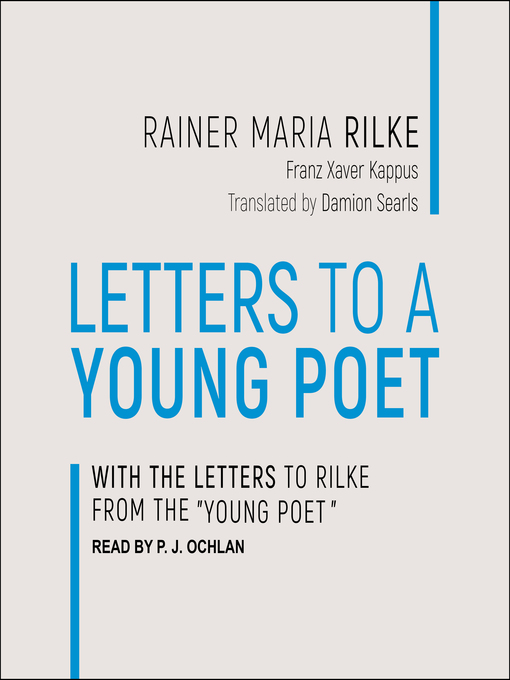Letters to a Young Poet
With the Letters to Rilke from the "Young Poet"
For nearly a century, eager writers and young poets, as well as those simply looking for a purpose in life, have embraced the wisdom of Rainer Maria Rilke's Letters to a Young Poet, first published in 1929. Most readers and scholars have long assumed that the letters from the young poet were forever lost to posterity. Yet, shockingly, these letters were recently uncovered in Germany, and now the acclaimed translator Damion Searls has not only cast a fresh eye on Rilke's original letters but also those of the "young poet," Franz Xaver Kappus, an Austrian military cadet and an aspiring poet. This timeless edition, in addition to presenting their dialogue together for the first time in English, provides a new window into the workings of Rilke's visionary poetic and philosophical mind, allowing us to reexperience the literary genius of one of the most inspiring works of twentieth-century literature.
-
Creators
-
Publisher
-
Release date
November 10, 2020 -
Formats
-
OverDrive Listen audiobook
- ISBN: 9781705253717
- File size: 95749 KB
- Duration: 03:19:28
-
-
Languages
- English
-
Reviews
-
Publisher's Weekly
August 24, 2020
Rilke’s Letters to a Young Poet (1929) is given an expanded treatment including, for the first time, the letters from Rilke’s correspondent, with intermittently intriguing but underwhelming results. In 2019, Rilke scholar Erich Unglaub discovered the letters that Franz Xaver Kappus, then an Austrian military cadet and aspiring poet, sent to Rilke between 1902 and 1908. Some of them provide enriching context for Letters’ famous passages. For example, following Rilke’s third letter, on the value of solitude and the importance of attaining it, Kappus asks if “we are supposed to endure our solitude in love too” and “share with the other person only the one common element of each having this solitude.” Too often, however, Kappus’s replies are simply fawning, as when he praises Rilke’s words as possessing the “simple grandeur of the Gospels and the richness of fairy-tale kings.” Searls’s translation lacks the poetic tone of earlier editions, and the book’s structure is disappointing, placing all of Kappus’s letters together after Rilke’s, rather than arranging them chronologically. Rilke fanatics will find some value in seeing Kappus’s side of the conversation, but the power of the book still lies in Rilke’s letters.
-
Loading
Why is availability limited?
×Availability can change throughout the month based on the library's budget. You can still place a hold on the title, and your hold will be automatically filled as soon as the title is available again.
The Kindle Book format for this title is not supported on:
×Read-along ebook
×The OverDrive Read format of this ebook has professional narration that plays while you read in your browser. Learn more here.

